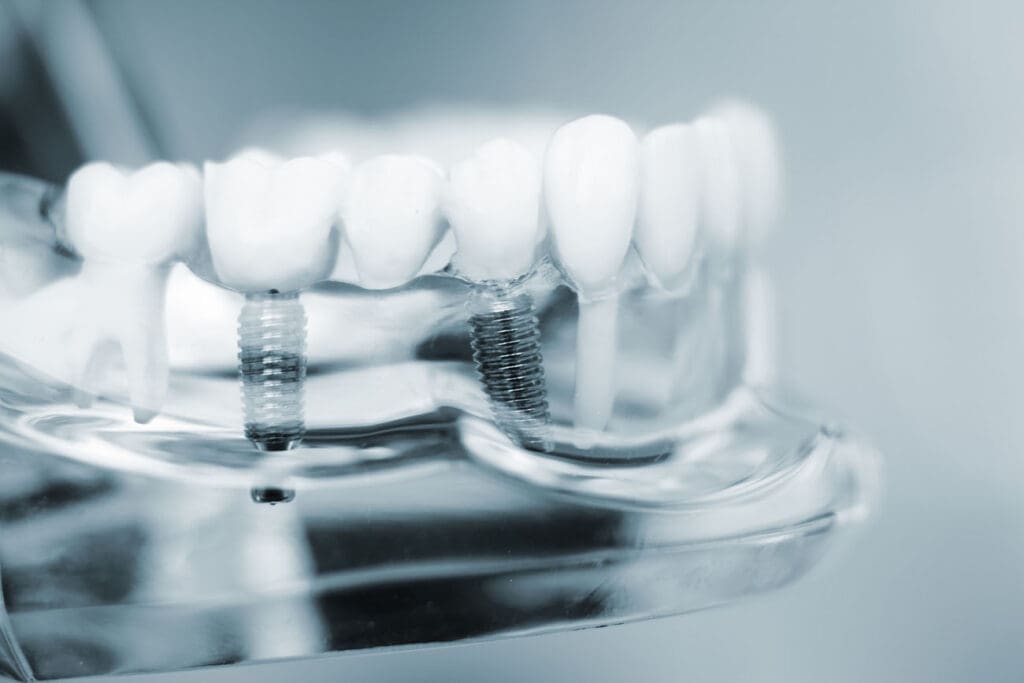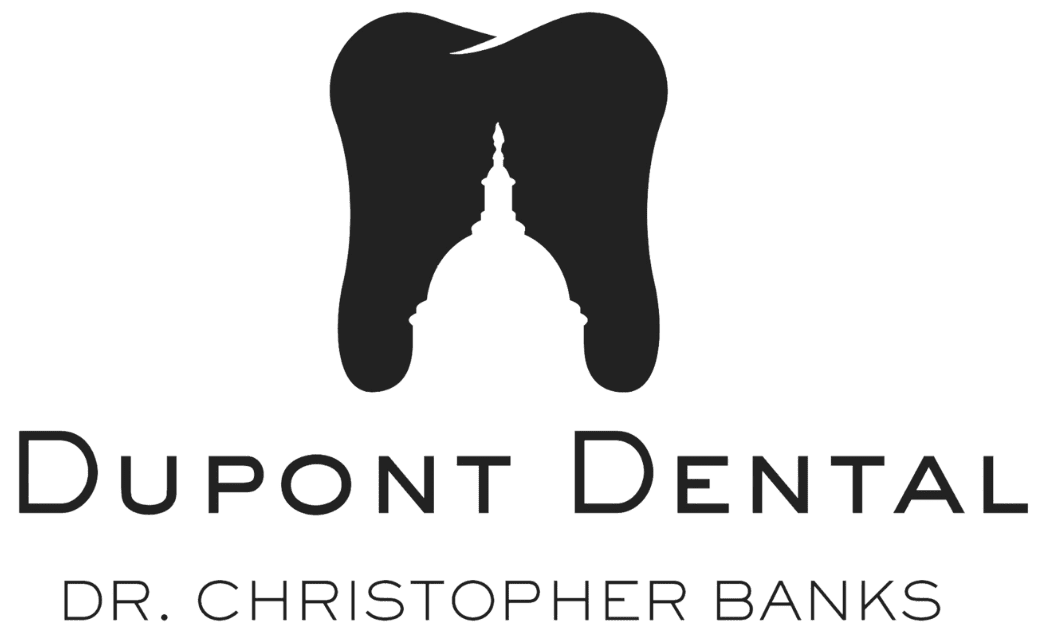Addressing tooth loss stands imperative for maintaining both oral health and overall well-being. Missing teeth can lead to various complications, including difficulty in chewing, speech impediments, and a decline in self-confidence. Dupont Dental, under the expertise of Dr. Christopher Banks, offers dental implant restoration as a reliable and lasting solution to tooth loss. Dental implants could not only restore your smile but also ensure the functionality and health of your mouth.

Benefits of Dental Implants
Durability and Longevity
Implants provide unmatched durability and longevity. Crafted from high-quality materials such as titanium, these implants integrate seamlessly with your jawbone, forming a robust foundation for replacement teeth. Unlike traditional bridges or dentures, dental implants offer a permanent solution. When cared for properly, they can last a lifetime, making them a sound investment in your oral health.
Natural Look and Feel
Dr. Christopher Banks customizes each dental implant restoration to match your unique dental structure, aiming for a natural look and feel. Once implanted, these replacements function like natural teeth, often allowing you to chew, speak, and smile confidently. The precision of the customization process at Dupont Dental helps guarantee that your dental implant will blend seamlessly with your existing teeth, providing a flawless appearance.
Preservation of Jawbone Health
One notable benefit of implants involves their ability to preserve jawbone health. Tooth loss often leads to bone deterioration over time, which can alter the shape of your face and negatively impact your oral health. Dental implants stimulate the jawbone, often preventing bone loss and maintaining the structural integrity of your mouth. This stimulation supports overall oral health and could prevent many complications associated with missing teeth.
Considerations for Dental Implants
Eligibility
Determining eligibility for implants requires an in-depth evaluation. Dr. Christopher Banks conducts comprehensive consultations to assess factors such as bone density, gum health, and overall oral hygiene. While dental implants serve as an ideal solution for many patients, some may require preliminary treatments such as bone grafting to qualify. For those not suitable for implants, Dupont Dental offers alternative solutions tailored to meet your needs.
Treatment Process
The dental implant process involves several stages, ensuring meticulous care and optimal results. Initially, a local oral surgeon will surgically place the implant into the jawbone. Over a few months, the implant will integrate with the bone, forming a solid foundation. Once fully integrated, Dr. Banks will attach an abutment and custom-made crown, completing the restoration. Although the process requires time, the long-term benefits of dental implants make it a worthwhile endeavor.
Frequently Asked Questions
What happens if I don’t have enough bone for an implant—can I still qualify?
Yes, you may still qualify for an implant with a bone graft. Bone grafting adds or rebuilds bone in areas where it’s too thin or weak to support an implant. After healing, your jaw will be strong enough for the implant. Your dentist will determine if grafting is needed after X-rays or a 3D scan.
How do dental implants help maintain my facial structure and prevent bone loss?
Tooth implants act like natural tooth roots by stimulating the jawbone when you chew. This stimulation keeps the bone from shrinking over time. The bone under that area slowly deteriorates without a tooth or implant, leading to facial sagging. Implants help preserve bone and maintain your natural face shape.
How do I care for my dental implants once they are in place?
You should care for dental implants by brushing twice daily with a soft-bristled toothbrush, paying special attention to all sides of the implant. Floss daily using implant-specific floss or floss threaders to clean areas a regular brush can’t reach. We also recommend visiting a dentist regularly for professional cleanings and exams to ensure your implants stay in optimal condition. Though implants can’t develop cavities like natural teeth, the surrounding gum tissue can still become infected.
What are the risks or possible complications of getting a dental implant?
While dental implants are highly successful, risks include infection, nerve injury, implant loosening, or failure to bond with the bone. Smoking, poor oral hygiene, or certain medical conditions can increase risks. Most complications are rare and manageable when caught early with regular dental follow-ups.
Are there dietary restrictions after getting a dental implant?
Yes, you’ll need to stick to soft foods for the first few days after surgery. Avoid hard, crunchy, sticky, or hot foods while the area heals. You can return to a normal diet once healing is complete and the crown is placed. Always follow your dentist’s specific instructions for your recovery.
Can dental implants replace multiple missing teeth or just a single tooth?
Dental implants can replace a single tooth, several teeth, or an entire arch. For multiple missing teeth, implants can support a bridge or a set of implant-supported dentures. Our office will recommend the best option depending on how many teeth are missing and the health of your jawbone.
Conclusion
In summary, implants present numerous advantages over other tooth replacement options. Their durability, natural appearance, and ability to preserve jawbone health make them a superior choice for those experiencing tooth loss. By opting for dental implants at Dupont Dental, you could restore your smile’s functionality and aesthetics. Schedule a consultation today to explore how dental implants can transform your life and enhance your oral health.
